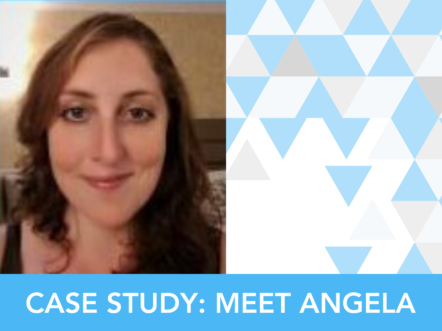Case Study: Meet Angela
Posted on August 12, 2020
Case Study: Meet Angela
Angela has completed the BCS International Diploma in Business Analysis and shares her experience. Before completing the diploma, Angela was working in a training position as a junior business analyst. That’s where she became aware of business analysis generally and got involved in projects through that role.
On the go? You can download a full copy of Angela’s case study here for later – click to download
Angela, how has your role changed now that you are a qualified business analyst?
“So, when I started I was in a junior BA role and that has changed now to BA. Having had the knowledge from the courses, that enabled me to make a good case for promoting my role so I have now gone up a level.”
And how has the diploma made a difference for you in your role?
“The first course I did was when I started my role as a BA with my current company, I literally knew nothing. The role was a supported training position but without studying the diploma at the same time, I think I would have really struggled to continue with the role. The foundation certificate gave a really broad overview of everything. I already had a lot of business analysis skills but doing the diploma re-enforced and really gave me the confidence that – this is the right way of doing things. I am now confident that what I am doing is, in fact, the accepted model of tackling problems.”
Is there anything that you applied to your role, maybe that you didn’t know before the course?
“Oh a lot, because I started with nothing. I think that throughout the whole experience, you end up assimilating all these techniques and using them without consciously knowing that you’re using them anymore because you just know it now. The techniques I learned, I have also used them to help one of my friends in her work even though her role is not a Business Analyst role, it just shows how applicable they are outside of BA work. She was looking at the worldview of people. She’s a manager and there’s quite a lot of conflict between who is supposed to be responsible for which bits and everyone has a differing worldview about what they think should be happening and what they think they should be responsible for in their department. Reading about that – I thought oh that’s about the business activity model.”
From your experience, how do Business Analysts bring value to the organisation?
“It’s about being there for the business, certainly in terms of our organisation. Trying to ease things along and make sure that the business gets what they need. Of course everything has its ups and downs but it’s that problem-solving aspect that I really enjoy.”
We often get asked which course people should start with. What would you suggest? Practitioner or Foundation first?
“I started with a Foundation Certificate course. It was quite scary at first because I started with knowing nothing but having said that, it was quite useful in the end because on all the other courses, I already knew a bit of everything. It just depends on the kind of person you are, if you like to understand everything first or if you learn more by actively doing. I like to know how everything fits together. The most useful thing I would say is at the end of that foundation course – I had Rod as a tutor so at the end he has this big whiteboard and displays a diagram of how everything fits together. If you learn more by actively doing things, you might prefer a Practitioner course.”
What advice would you give for the Oral Exam?
“Know the book. Read the book over and over again. In terms of being intimidated by the exam, I guess it’s no different than being in a normal interview. It’s just about knowing the stuff inside and out. I would also suggest a working week’s worth of preparation – approx 35-40 hours. A tip I would give, is to do half of the work before the oral preparation course and then half after. If I went into the prep course without doing any revision, I think I would have completely freaked out. I left myself about 10 days between the prep course and the exam. I didn’t want to give myself too much time because I felt that I wouldn’t do the work. 10 days was enough time to go over the stuff that was highlighted on the prep course without feeling panicked.”
Any other tips and advice for people who are studying the diploma to make sure they benefit from the course as much as possible?
“I think it’s helpful to take advantage of the option that Metadata offers – to attend courses remotely from home. Being able to dedicate that time in the evening to studying instead of travelling back and forth, I think is quite important. Also, don’t leave massive gaps between the courses and exams! Overall, just make sure you’re fully engaged in it, just immerse yourself in that learning experience to get the best from it. Don’t go into it half-heartedly because if you do, you’re probably not going to be happy about it and probably not going to be successful either.”








